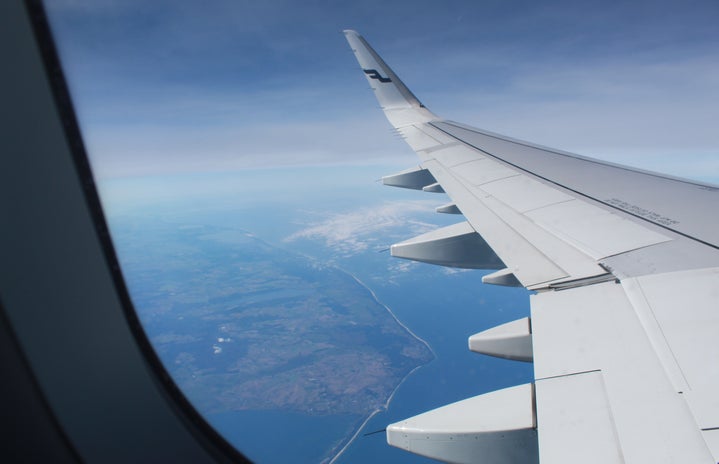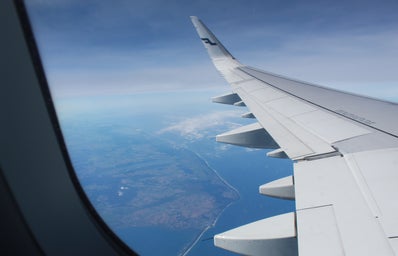As we all prepare for the end of the school year, I think it’s important to talk about places no one should really be visiting right now on vacations throughout the summer. Given that we are STILL in the middle of a global pandemic, I don’t really think we should be traveling internationally or even domestically honestly, but there is one place that is hot vacation spot for people, particularly, the yts, that we should DEFINITELY be avoiding at the moment.
Hawai’i is one of the places no one but native Hawai’ians should be visiting at the moment. Native Hawai’ians have been begging tourists NOT to visit the islands, for various reasons. Hawai’i, since its colonization by the U.S., has always been a popular vacation spot, leaving native Hawai’ians to bear the costs of over tourism. Since the 90s, native Hawai’ians have expressed distaste towards the tourist economy of the islands, and with good reason, but concerns about over tourism have only been exacerbated since the start of the COVID-19 pandemic.
Before I get into the contemporary negative effects of traveling to Hawai’i, it’s important we talk about the history of Hawai’i, particularly the U.S.’s relationship with the islands. Before the late 19th century, Hawai’i was its own kingdom, with a monarchy in place and Queen Lili’uokalani, as its ruler. In 1893, a coup, made of primarily U.S. troops/government officials, overthrew the Queen and her government. After many attempts to restore the Kingdom of Hawai’i, the group that took leadership after Lili’uokalani was overthrown, formed the Republic of Hawai’i and were recognized by the U.S. and other countries. The U.S.’s involvement in Hawai’i affairs, however, was far from over.
The Republic of Hawai’i leaders ultimately wanted the annexation of Hawai’i but settled for forming as a republic. But, in 1898, the Spanish-American War broke out and the U.S. suddenly saw the value of Hawai’i because they believed it would be a great location for a naval base. 5 months after the Spanish-American war broke out, Hawai’i was “transferred” to the U.S. and became a territory by 1900.
With the U.S. government now in control, Hawai’i and its people were exploited for the sake of U.S. imperialism. They harmed locals and the island through their expanding military and industrial projects. These projects also started displacing indigenous peoples as the native population in Hawai’i became drastically low. The popular Dole plantations that drove Hawai’i’s economy, were built upon the low wages paid to natives and their stolen land. After the pineapple industry moved to the Philippines, Hawai’i’s economy suffered due to the forced pineapple industrialization of Hawai’i.
Not only was the U.S. taking control economically and politically, but it was also working to eradicate indigenous peoples and “convert” them into Americans. In 1896, the native tongue of indigenous peoples was banned in Hawai’i and became replaced with English through schools and laws. Programs were implemented to erase indigenous culture in Hawai’i. In conjunction with the U.S. cultural imperialism, indigenous populations had been decreasing after disease had struck through first contacts with Americans and Europeans but also through immigration, as people from Asia migrated to Hawai’i due to the high demand of jobs as population was declining.
The Statehood of Hawai’i in 1959 marked a change in Hawai’i’s economy from relying on plantations to tourism and military outpost. Development, both residential and commercial but primarily commercial, began to take off in Hawai’i and a steady flow of immigrants and tourists followed. Urbanization brought Americans who wanted to settle in Hawai’i, displacing and forcing indigenous and native Hawai’ians from the islands. It is important to also mention that there has always been indigenous and native resistance to the U.S.’s colonial and imperial efforts.
With tourism now dictating Hawai’i’s economy, native Hawai’ian’s are forced to work in the industry as bartenders, dancers, cleaners, maintenance workers and more, all at incredibly low wages no matter how many tourists come in. This leaves native Hawai’ians in perpetual poverty, considering the cost of living has only risen while wages continue to be drastically low, despite these workers preserving the idea of a luxury experience.
While tourists experience a luxurious commercialized version of Hawai’ian life, natives are left to live in camps, with little access to healthcare and other essential services. The U.S.’s imperialism has taken Hawai’ian culture, appropriated it to fits its needs of selling sexual desire and exoticness, and exploited it for its own financial gain at the cost of millions of native and indigenous Hawai’ians.
When COVID-19 restrictions started easing around the summer of 2021, native Hawai’ians were once again forced to pay the costs of adjusting to the large influx of tourists from all over the world. As more and more tourists started flocking the islands, native Hawai’ians were facing legal restrictions that affected their daily living. Water shortages in July were met with restrictions imposed on Hawai’ian residents, in order to ensure tourist destinations remained in operation. Hawai’ians were also being exposed to COVID-19 as many tourists didn’t follow COVID-19 restrictions and they became less and less restrictive.
A year later and native Hawai’ians are still asking tourists to not visit the islands because of the detrimental effects tourism has on the population. Tourists presence on the islands is a direct threat to native Hawai’ians, as it threatens their livelihood. But, the real problem is that Hawai’i’s economy relies on tourism in the first place, which is none other than the United States of America’s own doing. Native and indigenous Hawai’ians have already lost so much thanks to the U.S.’ colonialism and imperialism and Hawai’ians now are still suffering from its effects.
As you make your travel plans for the summer, take the time to think and research the places you plan to visit. Traveling is not a right, it’s a privilege and justifying your trip as contributing to the locations economy doesn’t help either and this sentiment is just as bad, if not worse, than blindly traveling to places without taking into consideration the effects your presence may have.


